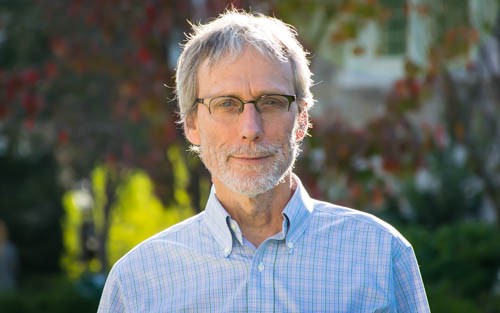John Rakestraw, executive director of the Center for Teaching Excellence since 2014, has announced that he will retire from his position this summer.

John Rakestraw
Rakestraw, who came to BC from Georgetown University where he served as director of curriculum, assessment, and pedagogical practice at its Center for New Designs in Learning and Scholarship, is credited with building a first-rate CTE at Boston College that provides support for faculty to create engaging and inclusive learning environments for all BC students.
Under his leadership, the center worked with BC’s faculty to explore new pedagogical and technological approaches, and to foster a culture of reflective and collaborative teaching. In addition, Rakestraw brought together disparate resources in academic technology and professional development, instructional design and teaching services, and the Connors Family Learning Center to work together to enhance overall teaching excellence within the University.
Provost and Dean of Faculties David Quigley praised Rakestraw for his work in improving the teaching and learning environment at Boston College and inspiring faculty to think in new and creative ways about their teaching.
"John Rakestraw arrived on campus soon after I became provost in 2014, and over the last five years he has provided strong leadership as the founding director of the Center for Teaching Excellence,” said Quigley. “He has developed a range of programs and events that have elevated the campus conversation about our shared commitment to transformative education."
Rakestraw said he was pleased with his accomplishments in the center but felt the time was right to retire after a distinguished career that included stops as an associate professor of philosophy and religious studies at Wesleyan College in Macon, Ga., a research fellow at Vanderbilt University’s Learning Technology Center, and assistant director of technology at its Center for Teaching.
“What I'm most proud of is managing the transition from Instructional Design and eTeaching Services and Sue Barrett's work with faculty and grad students, to what is now the CTE,” said Rakestraw. “I was especially concerned when I came to honor the good work of long-time IDeS staff, even as we expanded their work to faculty development more generally. I think we were successful in that. I think I've also made good contributions to BC’S work on assessment, in collaboration with Bob Newton and the University Council on Learning Outcomes, and to the core curriculum, working with Julian Bourg and Brian Gareau on the University Core Renewal Committee.
“In addition, I am pleased that we established a thriving faculty cohort program that engaged several dozen faculty each year in focused collaborative and independent work on pedagogical issues and strategies; developed a five-day teaching retreat for faculty, modeled in part on Intersections' writing retreat; expanded what was IDeS' annual eTeaching Day into an annual Excellence in Teaching Day; and continued IDeS’ work to support effective use of instructional design and media production services to several of the new online education programs. Above all, however, I am gratified to see the way in which many of the CTE staff have grown professionally during the last five years.”
Quigley said that Stacy Grooters, director of faculty programs, will serve as interim director this coming academic year.
University Communications



